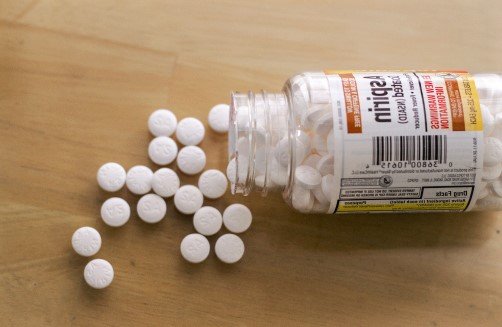
Extraordinary research in which thousands of patients with heart disease enrolled and tracked their wellbeing electronically when taking reduced- or regular-strength painkillers concluded that all doses seemed to be similarly healthy and reliable for avoiding further heart attacks and strokes.
Balanced Dosage Of Aspirin Is Less Risky And More Effective
There is, though, a significant limitation. People preferred the smaller dose so much that it’s questionable if the findings will prove that the drugs are truly equal, according to some independent researchers. Half of those who were advised to take the stronger dose either took the smaller dose or stopped taking medicine entirely.

Patients essentially knew what they had to take when they purchased the aspirin on their own, according to Dr. Salim Virani, who is a cardiologist at Baylor College of Medicine, Houston, and was not involved in the research.
Nonetheless, the findings suggest that there is a minute reason to take the higher dosage, 325 mg, which many doctors thought would be more effective than 81 mg aspirin, he added.
The findings were presented at an American College of Cardiology meeting on Saturday and published in the New England Journal of Medicine.
While aspirin can help avoid blood clots, it is not prescribed for healthy patients who have not yet experienced cardiovascular disease as it carries the possibility of bleeding. Its advantages are apparent, though, for those who have either undergone a heart attack, bypass surgery, or clogged arteries needing a stent.
However, the right dosage is unknown, and the study’s objective was to evaluate them in a real-world environment. The study was financed by the Patient-Centered Outcomes Research Institute, which was established under the Patient Protection and Affordable Care Act of 2010 to assist patients in making informed healthcare decisions.
About 15,000 people were invited to join via mail, email, or phone call and get registered on a website to which they returned every three to six months for follow-up. Medical data on participants was obtained from electronic reports and insurance payments through a network of participating health centers.
The patients were selected at random to take reduced or usual aspirin, which they purchased over the counter. Almost everyone was taking aspirin before the research started, and 85 percent were still on a reduced dosage, so getting people to use the medication they were given was not difficult from the start, according to Virani.
After about two years, approximately 7% of each category had died or been treated for a cardiac arrest. The safety outcomes were also comparable; less than 1% of patients needed hospitalization and a blood transfusion.
In an analysis in the medical journal, Colin Baigent, who is a medical scientist at the Oxford University, U.K., wrote that about 41 percent of those allocated to take the strong dose moved to the smaller one at some stage and that high percentage may have overlooked a true difference in protection or effectiveness.
Dr Jones of Duke University and one of the study’s leaders said that the study also offers important advice. He believes that if people are still on low-dose aspirin, remaining on the dose rather than switching is the best option. People who are doing well on 325 mg may want to stick with that and can speak with their physicians if they have any questions. Jones said that for new patients, it would generally consider starting on a low dosage.
People should realize that aspirin is a drug and that even if it is distributed over the counter, patients should not make choices on its use on their own, according to Virani.
He cautioned against modifying or discontinuing the medication without first consulting with a physician. This is critical, particularly when it comes to a treatment like aspirin.